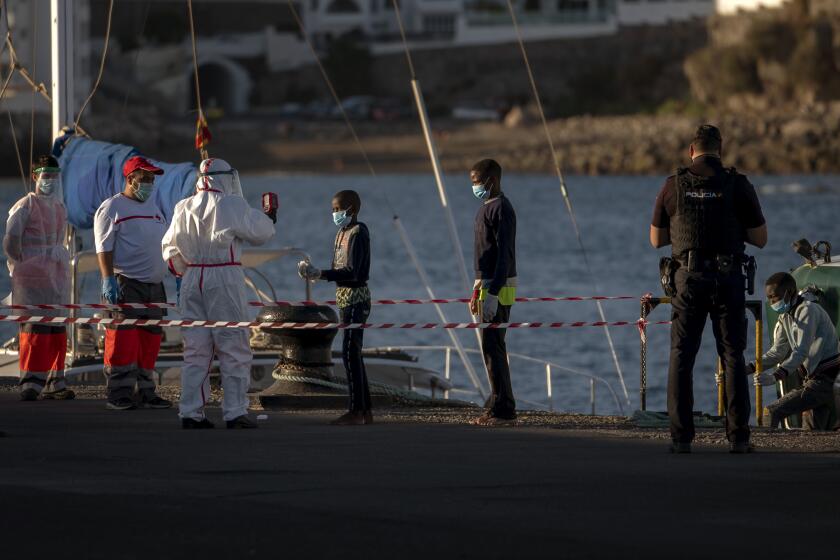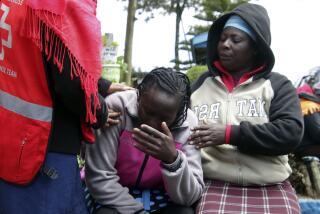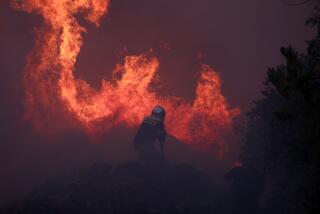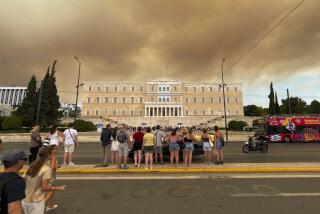Thousands sleep in the open after Greek refugee camp burns down
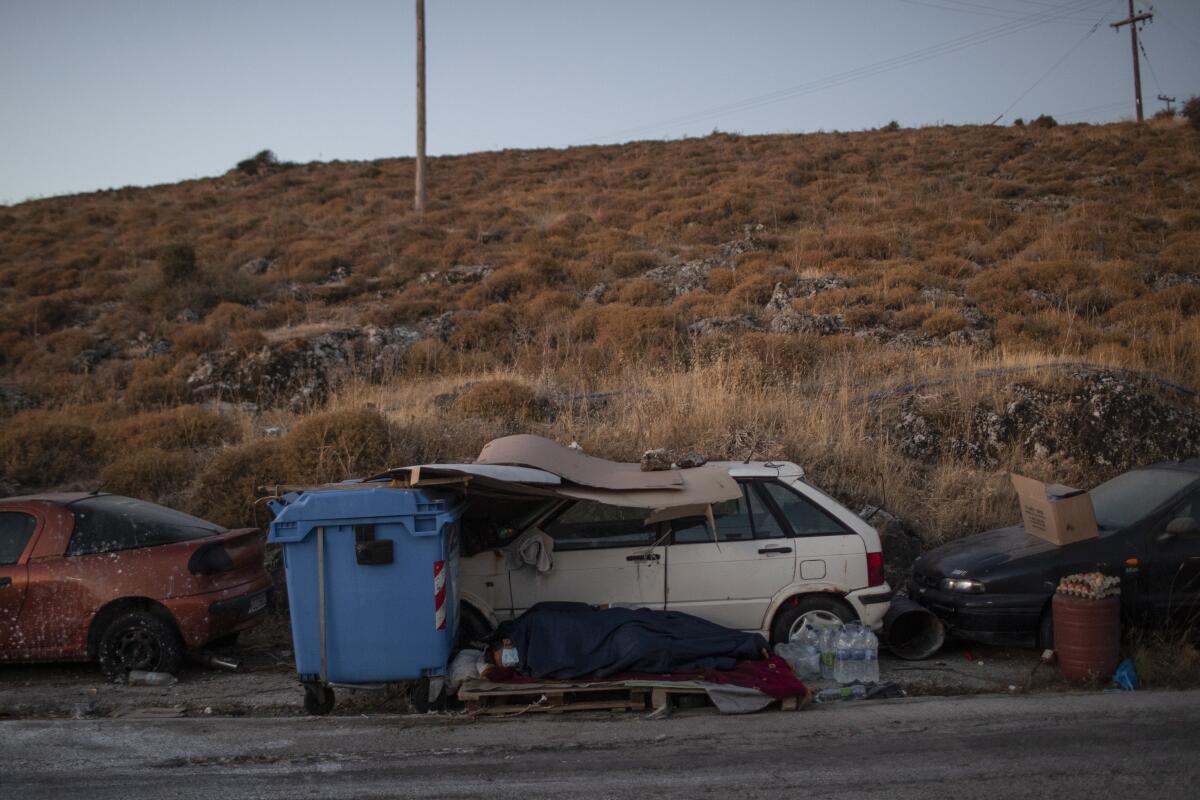
MYTILENE, Greece — Thousands of refugees and migrants have spent a third night in the open on the Greek island of Lesbos after two consecutive nights of fires in the notoriously overcrowded Moria camp left them homeless.
Some awoke Friday after sleeping by the side of the road, having cut down reeds and used salvaged blankets to make rudimentary shelters to protect them from the nighttime chill and scorching daytime sun. Others used tents or had just sleeping bags to shield them from the elements.
Greek authorities have said the fires on Tuesday and Wednesday evening were deliberately set by camp residents angered by isolation orders issued to prevent the spread of the coronavirus after 35 residents were found to have been infected.
The camp had been under a lockdown that was scheduled to last until mid-September after the first coronavirus case was identified in a Somali man who had been granted asylum. He left the camp but later returned from Athens.
“We have spent three days here without eating, without drinking. We are in conditions that are really, really not very good,” Freddy Musamba, a former camp resident from Gambia who denounced the situation in Greece and the conditions in which he had been living.
“I want to speak about the European Union — who abandoned us, who left us here like this,” Musamba said. He called for the EU “to come and support us, to not leave us. We are like abandoned children. We have endured things we didn’t know could happen.”
During Europe’s 2015 migrant crisis, Germany took in more than 1 million newcomers, sparking a backlash by some. Five years on, tensions have eased.
Aid organizations have long warned of dire conditions in the camp, which has a capacity of about 2,750 people but was housing more than 12,500 inside and in a spillover tent city in an adjacent olive grove.
The situation has led to spiraling tension, both among migrants and refugees inside the camp and with local residents who have long called for Moria to be shut down.
The first fire Tuesday night left about 3,500 of the camp’s inhabitants homeless, the Greek migration minister said. Tents were flown in, and a ferry and two navy ships were to provide emergency accommodation. But the remnants of the camp were burned down Wednesday night, leaving the remaining inhabitants with nowhere to stay.
On Wednesday, government spokesman Stelios Petsas emphasized that none of the camp’s residents, except for 406 unaccompanied teenagers and children who had been living there, would be allowed to leave the island. The unaccompanied minors were flown to the mainland and temporarily housed in hotels Wednesday night.
Migrants and asylum-seekers are increasingly crossing a treacherous part of the Atlantic Ocean to reach the Canary Islands, a Spanish archipelago.
“Some people do not respect the country that is hosting them, and they strive to prove they are not looking for a passport to a better life,” Petsas said, stressing that the fires had been deliberately set and had left thousands of families homeless.
Moria houses people from Africa, Asia and the Middle East who arrived on the island from the nearby Turkish coast, fleeing poverty or conflict in their homeland. Under a 2016 deal between the European Union and Turkey, those arriving on Greek islands remain there pending either their successful asylum application or deportation back to Turkey.
But a backlog in asylum applications, combined with continued arrivals and few deportations, have led to massive overcrowding in Moria and other camps on eastern Aegean islands.
The overcrowded camp and its dire conditions have been held up by critics as a symbol of failures in the EU’s migration and refugee policy.
French President Emanuel Macron said Thursday that France and Germany were in talks to take in some of the children who had been living in Moria.
German Interior Minister Horst Seehofer said Friday that 10 EU countries had agreed to participate in taking in the unaccompanied children and that talks were ongoing with others. He said Germany and France would take the largest share, “about two-thirds” of the 406 children who had been living at the camp without parents or guardians.
A program was already in place before the fire for several European countries to take in some of the thousands of unaccompanied minors, mostly teenagers, staying in refugee and migrant facilities across Greece.
More to Read
Sign up for Essential California
The most important California stories and recommendations in your inbox every morning.
You may occasionally receive promotional content from the Los Angeles Times.
